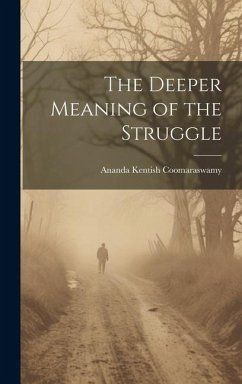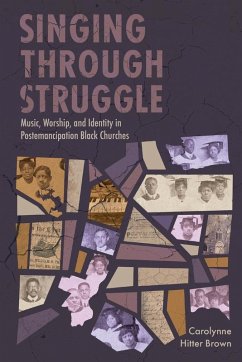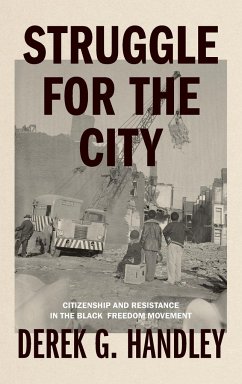
Struggle for the City
Versandkostenfrei!
Versandfertig in 1-2 Wochen
132,99 €
inkl. MwSt.

PAYBACK Punkte
66 °P sammeln!
The urban renewal policies stemming from the 1954 Housing Act and 1956 Highway Act destroyed the economic centers of many Black neighborhoods in the United States. Struggle for the City recovers the agency and solidarity of African American residents confronting this diagnosis of "blight" in northern cities in the 1950s and 1960s. Examining Black newspapers, archival documents from Black organizations, and oral histories of community advocates, Derek G. Handley shows how African American residents in three communities-the Hill district of Pittsburgh, the Bronzeville neighborhood of Milwaukee, ...
The urban renewal policies stemming from the 1954 Housing Act and 1956 Highway Act destroyed the economic centers of many Black neighborhoods in the United States. Struggle for the City recovers the agency and solidarity of African American residents confronting this diagnosis of "blight" in northern cities in the 1950s and 1960s. Examining Black newspapers, archival documents from Black organizations, and oral histories of community advocates, Derek G. Handley shows how African American residents in three communities-the Hill district of Pittsburgh, the Bronzeville neighborhood of Milwaukee, and the Rondo district of St. Paul-enacted a new form of citizenship to fight for their neighborhoods. Dubbing this the "Black Rhetorical Citizenship," a nod to the integral role of language and other symbolic means in the Black Freedom Movement, Handley situates citizenship as both a site of resistance and a mode of public engagement that cannot be divorced from race and the effects of racism. Through this framework, Struggle for the City demonstrates how local organizers, leaders, and residents used rhetorics of placemaking, community organizing, and critical memory to resist the bulldozing visions of urban renewal. By showing how African American residents built political community at the local level and by centering the residents in their own narratives of displacement, Handley recovers strategies of resistance that continue to influence the actions of the Black Freedom Movement, including Black Lives Matter.



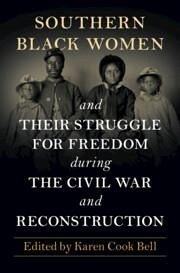
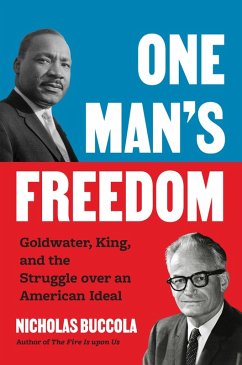
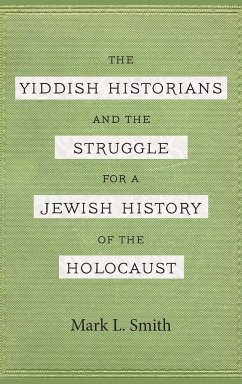
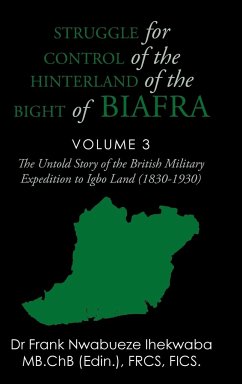
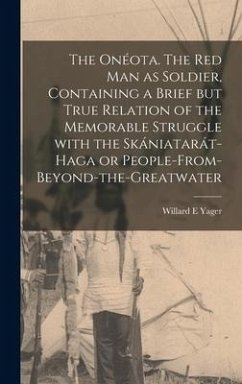
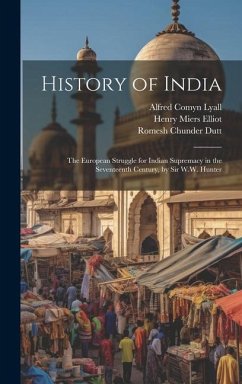
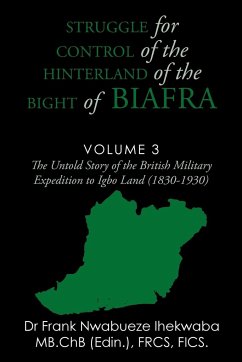
![A History of the Struggle for Slavery Extension or Restriction in the United States [electronic Resource] From the Declaration of Independence to the Cover A History of the Struggle for Slavery Extension or Restriction in the United States [electronic Resource] From the Declaration of Independence to the](https://bilder.buecher.de/produkte/68/68663/68663580n.jpg)
